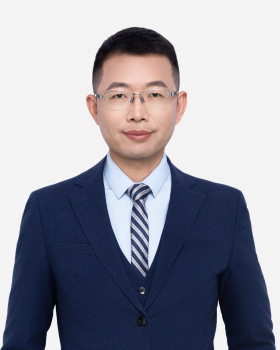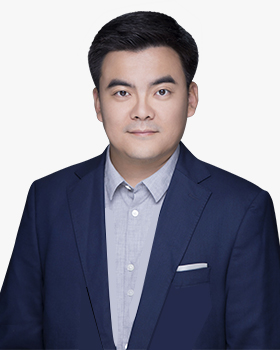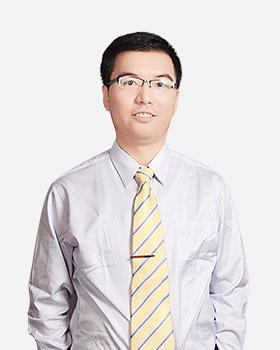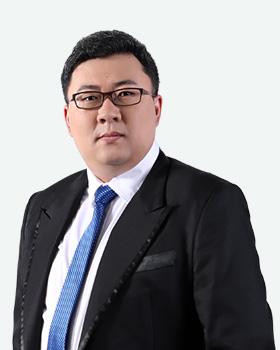2018年桂林电子科技大学翻译硕士英语考研试题
Part I Grammar and Vocabulary (30%)(每小题1分)
Choose the best answers and mark your answers on your answer sheet.
1. The town maintains very many Chinese traditions which are among the highest achievements of those who created the ________ we now enjoy.
A. heritage B. inheritance C. genetics D. estate
2. The twin brothers showed great _______ to their elder sister, who had acted as sole parent to them since their parents died during the American Civil War.
A. allegiance B. devotion C. compliance D. admiration
3. Night patrols were sent out to engage the enemy in a series of small _______.
A. battles B. fight C. skirmishes D. clash
4. The old building has an ________ air of sadness about it.
A. insurmountable B. insuperable C. intangible D. insurable
5. For many patients, institutional care is the most _______ and beneficial form of care.
A. pertinent B. appropriate C. acute D. persistent
6. She’s not a very valuable member of the debate team, actually----she loves making speeches, but she’s not very good at ______ opponents’ argument.
A. rendering B. refuting C. resolving D. impeding
7. Martin Luther King, Jr., testified to the _____ effect of The Strange Career of Jim Crow on the civil rights movement by praising the book and quoting it frequently.
A. pervasive B. wary C. novel D. profound
8. Jean Wagner’s most enduring contribution to the study of Afro-American poetry is his insistence that it be analyzed in a religious, as well as ______ , frame of reference.
A. scant B. secular C. simultaneous D. salubrious
9. If you are an athlete, strong abdominal muscles help you ensure a strong back and freedom from injury during _______ upper-body movement.
A. valiant B. variable C. vigilant D. vigorous
10. You are now not wanted; you are now ______ from the work environment that offers purpose and structure in your life.
A. included B. concluded C. precluded D. excluded
11. There is much I enjoy about the changing seasons, but my favorite time is the _______ from fall to winter.
A. transmission B. transformation C. transition D. transfer
12. After four years in the same job his enthusiasm finally _______.
A. deteriorated B. dispersed C. dissipated D. drained
13. The wings of the bird still _______ after it had been shot down.
A. slapped B. scratched C. flapped D. fluctuated
14. Their diplomatic principles completely laid bare their _______ for world conquest.
A. admiration B. ambition C. administration D. orientation
15. What the correspondent sent us is an _______ news report. We can depend on t.
A. evident B. authentic C. ultimate D. immediate
16. The computer hacker coined the term virtual reality.
A. made into coins B. invented C. made a lot of money D. earned money
17. Now and in the future, we will live as free people, not in fear and never at the mercy of any foreign powers.
A. For the sake of B. at the cost of C. in the interest of D. under the control of
18. Most college students in the United States live away from home.
A. apart B. down C. elsewhere D. along
19. Applicants will be asked to provide information on how they will disseminate information to other students at their university or college.
A. disclose B. deliver C. spread D. analyze
20. The senator agreed that his support of the measure would jeopardize his chances for reelection.
A. benefit B. endanger C. hinder D. disturb
21. “It seems that she was there at the conference.” The sentence means that_______.
A. she seems to be there at the conference.
B. she seemed to be there at the conference.
C. she seems to have been there at the conference.
D. she seemed to being there at the conference.
22. Each book and each paper______ found in its place.
A. are B. is C. have been D. be
23. Unfortunately she married ___________ .
A. a husband of a devil B. a devil of a husband
C. her husband of her devil D. a devil of the husband
24.___________ recommendation has so far been made by the technicians.
A. Several such B. No such a
C. Such no D. No such
25. Come and see me whenever ______.
A. you are convenient
B. you will be convenient
C. it is convenient to you
D. it will be convenient to you
26. The soldier was accused of ____ his country.
A. betraying B. having betrayed
C. being betrayed D. having been betrayed
27.Your aunt invites you to the movies today
---I had rather she ____ me tomorrow than today
A. tells B. told C. would tell D. had told
28. Water enters into a great variety of chemical reactions, _____have been mentioned in previous pages.
A. a few of what B. a few of which C. a few of that D. a few of them
29._____ he needed money for a few car, he decided not to borrow it from the bank. (98, 48)
A. Much as B. Much though
C. As much D. Though much
30. China is not _____ she used to be.
A. that B. which C. like D. what
Part II Reading Comprehension (40%)
Section 1 Multiple-choice Questions. (30%) (每小题2分)
In this section, there are three passages followed by questions or unfinished statements, each with four suggested answers marked A, B, C and D. Choose the one that you think is the best answer and mark your answer on your ANSWER SHEET.
Passage One
Of all the components of a good night's sleep, dreams seem to be least within our control. In dreams, a window opens into a world where logic is suspended and dead people speak. A century ago, Freud formulated his revolutionary theory that dreams were the disguised shadows of our unconscious desires and fears; by the late 1970s, neurologists had switched to thinking of them as just “mental noise” – the random byproducts of the neural repair work that goes on during sleep. Now researchers suspect that dreams are part of the mind’s emotional thermostat, regulating moods while the brain is “offline”. And one leading authority says that these intensely powerful mental events can be not only harnessed but actually brought under conscious control, to help us sleep and feel better. “It’s your dream,” says Rosalind Cartwright, chair of psychology at Chicago’s Medical Center, “if you don’t like it, change it.”
Evidence from brain imaging supports this view. The brain is as active during REM(rapid eye movement) sleep--when most vivid dreams occur--as it is when fully awake, says Dr. Eric Nofzinger at the University of Pittsburgh. But not all parts of the brain are equally involved; the limbic system (the ---- emotional brain) is especially active, while the prefrontal cortex (the center of intellect and reasoning ) is relatively quiet. “ We wake up from dreams happy or depressed, and those feelings can stay with us all day”, says Stanford sleep researcher Dr. William Dement.
The link between dreams and emotions shows up among the patients in Cartwright’s clinic. Most people seem to have more had dreams early in the night, progressing toward happier ones before awakening, suggesting that they are working through negative feelings generated during the day. Because our conscious mind is occupied with daily life we don’t always think about the emotional significance of the day’s events ---- until, it appears, we begin to dream.
And this process need not be left to the unconscious. Cartwright believes one can exercise conscious control over recurring bad dreams. As soon as you awaken, identify what is upsetting about the dream. Visualize how you would like it to end instead; the next time it occurs, try to wake up just enough to control its course. With much practice people can learn to, literally, do it in their sleep.
At the end of the day, there's probably little reason to pay attention to our dreams at all unless
they keep us from sleeping or "we wake up in panic,” Cartwright says. Terrorism, economic uncertainties and general feelings of insecurity have increased people’s anxiety. Those suffering from persistent nightmares should seek help from a therapist. For the rest of us, the brain has its ways of working through bad feelings. Sleep—or rather dream—on it and you’ll feel better in the morning.
1. By saying that “dreams are part of the mind’s emotional thermostat, ” (Para. 1) the researchers mean that ________.
A. we can think logically in the dreams too
B. dreams can be brought under conscious control
C. dreams represent our unconscious desires and fears
D. dreams can help us keep our mood comparatively stable
2. What did Cartwright find in her clinic?
A. Most bad dreams were followed by happier ones.
B. Divorced couples usually have more bad dreams.
C. One’s dreaming process is related to his emotion.
D. People having negative feelings dream more often.
3. Cartwright believed with much practice we can learn to _______.
A. control what dreams t dream
B. sleep well without any dreams
C. wake up in time to stop the bad dreams
D. identify what is upsetting about the dreams
4. The author points out that a person who has constant bad dreams should ______.
A. learn to control his dreams
B. consult a doctor
C. sleep and dream on it
D. get rid of anxiety first
5. The author most probably thinks that controlling dreams is _______.
A. a good practice
B. a new discovery
C. helpful for everyone
D. not essential for everyone
相关推荐:
扫一扫二维码,加入考研微信群
超多干货福利随机掉落,志同道合小伙伴随时交流~ | 扫一扫二维码,关注233考研微信公众号
最新资讯第一时间知晓,备考经验技巧专栏传授 |











